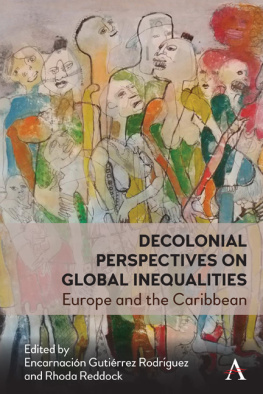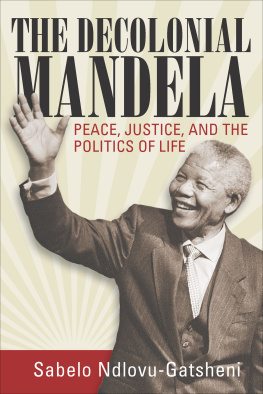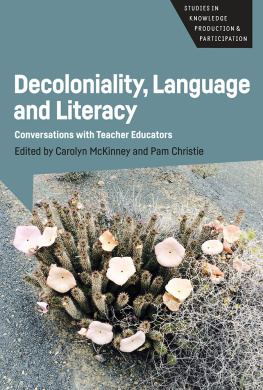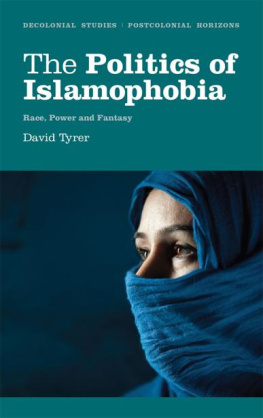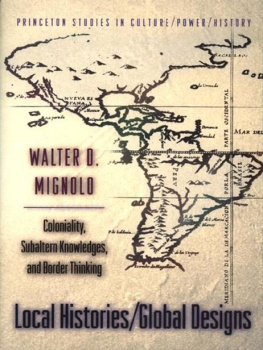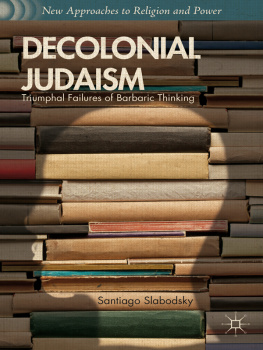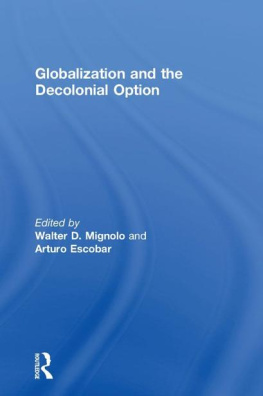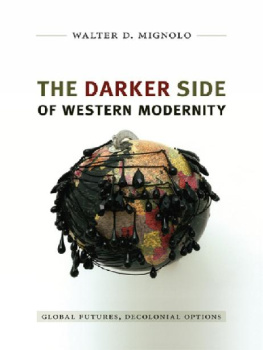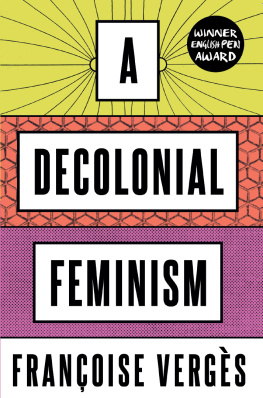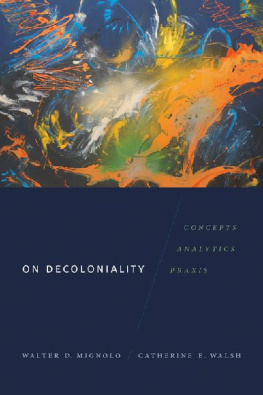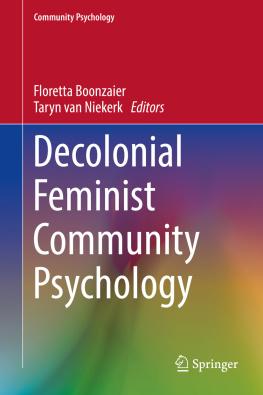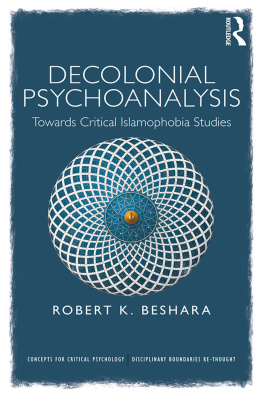Mignolo - The Politics of Decolonial Investigations (On Decoloniality)
Here you can read online Mignolo - The Politics of Decolonial Investigations (On Decoloniality) full text of the book (entire story) in english for free. Download pdf and epub, get meaning, cover and reviews about this ebook. year: 2021, publisher: Duke University Press, genre: Politics. Description of the work, (preface) as well as reviews are available. Best literature library LitArk.com created for fans of good reading and offers a wide selection of genres:
Romance novel
Science fiction
Adventure
Detective
Science
History
Home and family
Prose
Art
Politics
Computer
Non-fiction
Religion
Business
Children
Humor
Choose a favorite category and find really read worthwhile books. Enjoy immersion in the world of imagination, feel the emotions of the characters or learn something new for yourself, make an fascinating discovery.

The Politics of Decolonial Investigations (On Decoloniality): summary, description and annotation
We offer to read an annotation, description, summary or preface (depends on what the author of the book "The Politics of Decolonial Investigations (On Decoloniality)" wrote himself). If you haven't found the necessary information about the book — write in the comments, we will try to find it.
Mignolo: author's other books
Who wrote The Politics of Decolonial Investigations (On Decoloniality)? Find out the surname, the name of the author of the book and a list of all author's works by series.
The Politics of Decolonial Investigations (On Decoloniality) — read online for free the complete book (whole text) full work
Below is the text of the book, divided by pages. System saving the place of the last page read, allows you to conveniently read the book "The Politics of Decolonial Investigations (On Decoloniality)" online for free, without having to search again every time where you left off. Put a bookmark, and you can go to the page where you finished reading at any time.
Font size:
Interval:
Bookmark:
ON DECOLONIALITY a series edited by
Walter D. Mignolo and Catherine E. Walsh
On Decoloniality interconnects a diverse array of perspectives from the lived experiences of coloniality and decolonial thought/praxis in different local histories from across the globe. The series is concerned with colonialitys global logic and scope and with the myriad of decolonial responses and engagements that contest coloniality/modernitys totalizing violences, claims, and frame, opening toward an otherwise of being, thinking, sensing, knowing, and living; that is, of re-existences and worlds-making. Aimed at a broad audience, from scholars, students, and artists to journalists, activists, and socially engaged intellectuals, On Decoloniality invites a wide range of participants to join one of the fastest-growing debates in the humanities and social sciences that attends to the lived concerns of dignity, life, and the survival of the planet.
WALTER D. MIGNOLO
THE POLITICS OF DECOLONIAL INVESTIGATIONS
DUKE UNIVERSITY PRESSDURHAM AND LONDON2021
2021 Duke University Press
All rights reserved
Printed in the United States of America on acid-free paper
Designed by Aimee C. Harrison
Typeset in Portrait Text Regular and ITC Avant Garde Gothic by Westchester Publishing Services
Library of Congress Cataloging-in-Publication Data
Names: Mignolo, Walter, author.
Title: The politics of decolonial investigations / Walter D. Mignolo.
Description: Durham : Duke University Press, 2021. | Series: On decoloniality | Includes bibliographical references and index. | Identifiers: LCCN 2020042286 (print)
LCCN 2020042287 (ebook)
ISBN 9781478001140 (hardcover)
ISBN 9781478002574 (ebook)
ISBN 9781478001492 (paperback)
Subjects: LCSH : Decolonization. | Postcolonialism. | RacismPolitical aspects. | Knowledge, Theory ofPolitical aspects. | Civilization, Western. | Civilization, Modern.
Classification: LCC JV 51 (ebook) | LCC JV 51 .M 5445 2021 (print) | DDC 325/.3dc23
LC record available at https://lccn.loc.gov/2020042286
Cover art: Zorikto Dorzhiev, Sea , 2009. Oil on canvas, 80 cm 135 cm. Courtesy of Khankhalaev Gallery.
To the memory of Nieves y Mingo,
mi madre y mi padre,
who moved from the countryside to a nearby small town, Corral de Bustos, when I was seven,
so I could go to school.
The manuscript for this book was forwarded to Duke University Press in March of 2020. The pandemic was reaching the US. Europe was reporting alarming statistics, while China, South Korea, and Taiwan were reporting their successful management of the events, whether unavoidable, carelessly managed, or planned (and by whom?). I received the copyedited manuscript at the beginning of October 2020. The US had been reporting alarming statistics for several months: infections, deaths, unemployment. Congress and the Federal Reserve took action with a broad array of programs to limit the economic damage from the pandemic, including lending trillions of dollars to support households, employers, financial markets, and state and local governments. The statistics around the planet were disconcerting. Under the circumstances, in reading a manuscript that was finished before the shockwhatever the causes, the reasons, and the originationsomething arose in my consciousness that has been in my thoughts for a while: that we, on the planet, are experiencing a change of era, and no longer an epoch of changes. I couldnt at that point do too much with the manuscript, other than acknowledging that the cycle of Westernization of the planet was decisively over. The agony will last for a few decades, and it will not be pretty. Multipolarity in the interstate system is displacing unipolar Westernization; pluriversality is displacing the Western universality of knowing and sensing. This is the main argument of the book. It remains valid to me. The pandemic only accelerated a process that is irreversible and provided more evidence that the long-lasting consequences of coloniality are no longer hidden under the rhetoric of modernity, development, progress, growth, more is better, and bigger is virtuous.
The era that is closing I have dated 15002000. It is the era of Westernization of the planet, political and economic unilaterality, and epistemic and aesthetic universality. It is exploding, and out of the debris three trajectories are defining the change of era: de-Westernization and decoloniality provoked the counterreformation, that is, re-Westernization. The change of era invades and, like a whirlwind, eats into domestic and interstate politics and economics, with cultural corollaries across the board in the spheres of knowing and sensing: from research and teaching institutions (e.g., universities and museums) to the philosophical thinking that emerges from the trenches of everyday life-forming manifested in peoples organizing to stop extractivism, agrobusiness, state abuses, uses and misuses of the pandemic, etc. The change of era is the overall frame of the book that I render in as the third nomos of the Earth. The sense of the change of epoch or era floats, so to speak, over the other chapters. Hence, the book floats in the borderlands of the closing era of changes and the opening change of era.
This book is published by a university press. It is a scholarly book. Decolonial critical minds fear that the decolonial is surrendering to academia. Some critics even consider that Duke University is not a proper place to make decolonial claims. I respect those critics. Everyone is entitled to her or his own opinion. I am not apologizing for it. Being able to interact with undergraduate and graduate students around these ideas at Dukebut also in many universities and museums in the US, Latin America, western Europe, South Africa, Taiwan, China, and Hong Kongis not something that shall be rejected. Many others are like me. Universities and museums, think tanks composed by actors who have been through the university, and millions of people in the world, yesterday and today, have been through state and private pedagogical institutions, from primary school to graduate and professional schools. There is strong opposition in both universities and museums to thinking decolonially; it is also olympically ignored in the mass media.
An increasing number of professionals today (in law, medicine, engineering, design, computing) are becoming aware of the coloniality of knowledge and sensing , realizing how it has affected epistemology (the principles and assumptions that regulate knowing) and aesthetics (the principles and assumptions that regulate taste and subjectivity) over the past five hundred years. From 1500 to 1800, Christian theology (Catholic and Protestant) regulated both knowing and sensing. From 1800 to 2000, epistemology and aesthetics mutated into secular management, although theology never went away. The year 1800 could be taken as the year of the first drastic intramural overturning of the modern/colonial era. Theology and hegemony and dominance split into three secular trajectories: conservatism (e.g., the secularization of theological beliefs), liberalism (the bourgeois system of ideas regulating politics, economy, epistemology, and aesthetics), and socialism/communism (e.g., the dissenting trajectory emerging from the theological wreckages). These three trajectories remained, with modulations. Since 1970, there has been an evolutionary drift: neoliberalism and globalism emerged out of liberalism, but liberalism persisted; conservatism mutated into fundamentalist nationalism (e.g., the alt-right, neofascism); and socialism/communism has had to be reconsidered after the collapse of the Soviet Union and the mutations of China after Mao Zedong.
Next pageFont size:
Interval:
Bookmark:
Similar books «The Politics of Decolonial Investigations (On Decoloniality)»
Look at similar books to The Politics of Decolonial Investigations (On Decoloniality). We have selected literature similar in name and meaning in the hope of providing readers with more options to find new, interesting, not yet read works.
Discussion, reviews of the book The Politics of Decolonial Investigations (On Decoloniality) and just readers' own opinions. Leave your comments, write what you think about the work, its meaning or the main characters. Specify what exactly you liked and what you didn't like, and why you think so.

